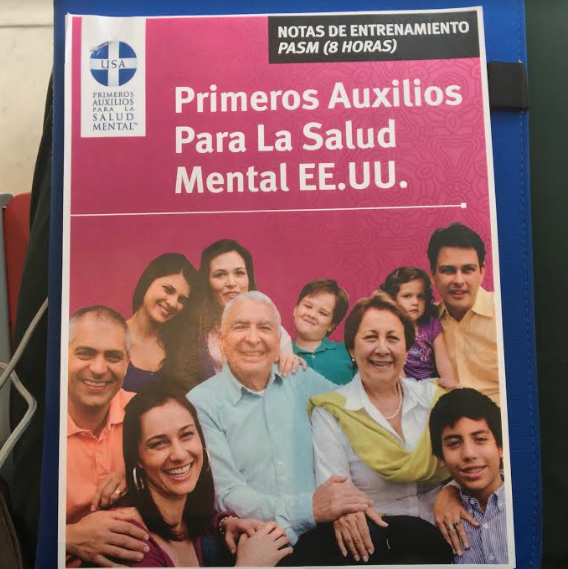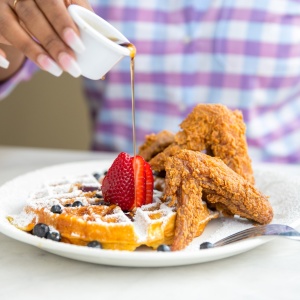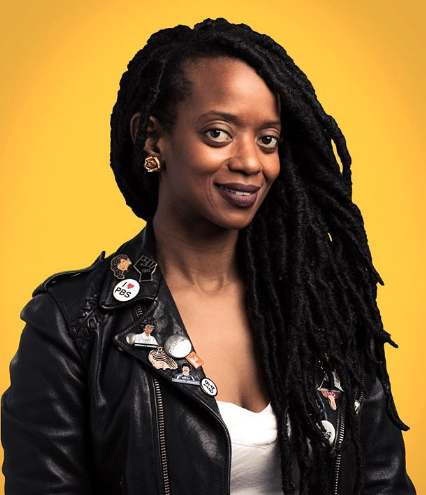
Welcome to another round of Mental Health Monday, your weekly dose of stories, resources, and motivation for your everyday life. On last week's Mental Health Monday, Angela Helm wrote about that time her mom's breakown was captured on WorldstarHipHop, Katrina explored the dangers of the "ride-or-die chick" narrative, Hakim Hill dove into code switching and how it affects us, and Da Brat's story of loss was featured for Children's Grief Awareness Month. Have a gander.
THIS WEEK'S GOODNESS:
This week, we take a look back at one of the most revealing songs on Kendrick Lamar's To Pimp A Butterfly, which explored self-hate and self-love. Here, he spoke with MTV about the depression and suicidal thoughts that inspired the song, and how real life traumas impact his music.
"‘Sometimes I Just Don’t Wanna Be Here Anymore’: On Black Children and Suicide" by Kondawani Fidel [The Root]
A scarred brown palm flew in the air. A squeaky preteen voice followed: “Can you tell me how to cope with suicidal thoughts? Because sometimes I just don’t wanna be here anymore.”
I was sitting in front of a class of middle schoolers who were reading my book, Raw Wounds, when a student asked that haunting question. I can’t lie; when I asked the kids, “Do you have any questions before I start speaking?” I wrongly assumed that they would raise questions about my book. Boy, was I wrong.
"Army lifts ban on waivers for recruits with history of some mental health issues" by Tom Vanden Brook [USA Today]
The decision to open Army recruiting to those with mental health conditions comes as the service faces the challenging goal of recruiting 80,000 new soldiers through September 2018. To meet last year's goal of 69,000, the Army accepted more recruits who fared poorly on aptitude tests, increased the number of waivers granted for marijuana use and offered hundreds of millions of dollars in bonuses.
"Mental health summit aims to help young black men, boys cope with trauma" by William Lee [Chicago Tribune]
The four-hour summit, which begins at 10 a.m. at the Connect Gallery in Hyde Park, will also address the effects of social media on fueling the trauma on black youths and adults.
“With social media, I feel like we’ve normalized so many abnormal behaviors. At any given point you can log on Facebook and … you can see a picture of someone dead in the street,” she said.
"Are Black Children Killing Themselves To Avoid Abuse?" by Stacey Patton [Dame Magazine]
When I was around 8 or 9 years old I tried to kill myself.
Twice.
The first time, I threw myself down a narrow flight of carpeted stairs. The second time, I tried to poison myself by drinking peroxide. I had to lie to my adoptive mother about the limp, the twisted ankle, and the burns on my mouth and throat. The truth that I had intentionally tried to hurt myself would have led to another whupping.
Beyond the Statistics by Marylanders to Prevent Gun Violence: Erricka by Liz Banach
David was many things: a star football player, a great friend, a loving brother. He also struggled with an addiction to crack cocaine. Erricka remembered, “What’s crazy about him to me is that when he wasn’t using, he was helping other people get clean. He was an angel, a teddy bear.”
Aaaaand model Doraezha opened up about her journey with bipolar disorder.
If you have a mental health resource, event, or piece of content we should know about, step into our office. You da bess.


































